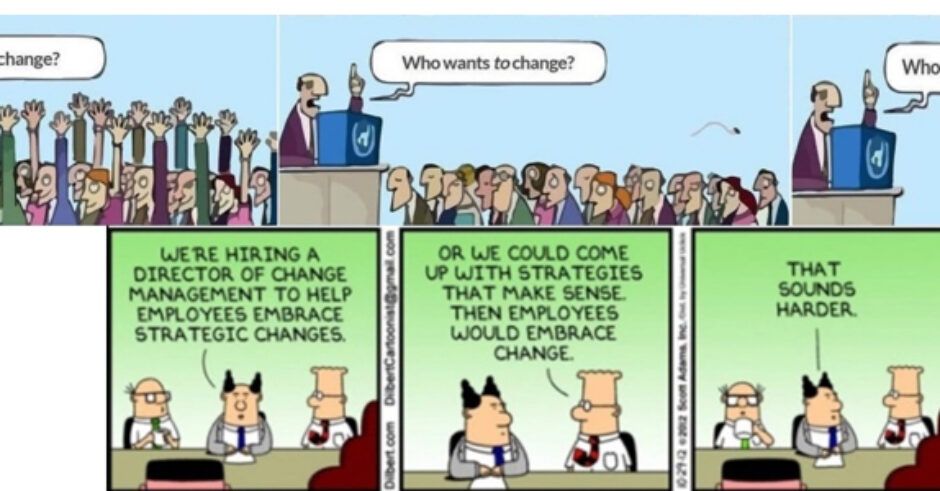Implementing change in a dictatorship is a change manager’s dream job. Once the decision is made at the very top, the masses are told what to do and the decision holds as an unbreakable edict that no one would dare challenge. It might take a bit of effort to communicate the changes to the people, but all in all, as long as the rules are clearly spelled out, there is no need to convince anyone that the dictator’s decision is the best way forward.
While there is no debating that democracy is a far more suitable leadership model, it does raise a number of challenges, in particular when it comes to leading change and transformation. Anyone who has tried to implement a large transformation programme in a Partnership firm will bear the scars from that experience. Long gone is the authoritative leader who sets the rules from his or her ivory tower, decisions now need to be made by a large group of partners, who inevitably have varying views of the world. And because the model doesn’t allow for an obvious leader to emerge, it is very difficult to agree on a single strategic view and put in place a concrete action plan.
Having spent the last 12 years working in Big Four consulting firms, I have experienced this challenge first hand. Because these firms’ leaders are used to “asking” their people to change, they spend millions on change management programmes which are largely aimed at convincing their partners, staff and network that the change is necessary and beneficial. While I agree that there is always a degree of consultation needed to ensure the right strategic decisions are being made, partnerships also need to learn that it is acceptable to “tell” their people what to do once those decisions have been made. Sometimes the greater good, or even the survival of the firm, depends on these changes, whether people like them or not. The assumption that change has to be popular to stick is only half true. More than anything, change requires strong leadership from decision-makers who have a clear vision and strategy and are able to make decisions easily and quickly, without getting stuck in an apparatus of consultations and approvals. Change management can only have an impact as long as this vision is clearly articulated and leadership is fully committed to delivering the strategic outcomes. An October 2017 survey conducted by McKinsey & Co[1] shows clearly that commitment to change is the primary source of success for a change programme, while effective change management ranks only 7th! The vast majority of transformation programmes I have been involved in over the past dozen years have had a change management team and strategy in place. What has made some programmes successful hasn’t been the ability to implement change, it has been the ability to lead change.
Only once Partnerships manage to structure themselves in a way that allows for clear leadership and decision-making will they will be able to put in place more effective change programmes and achieve their strategic objectives. This is of paramount importance as the ability to manage this cultural shift could ultimately dictate which firms survive and which ones become irrelevant.


